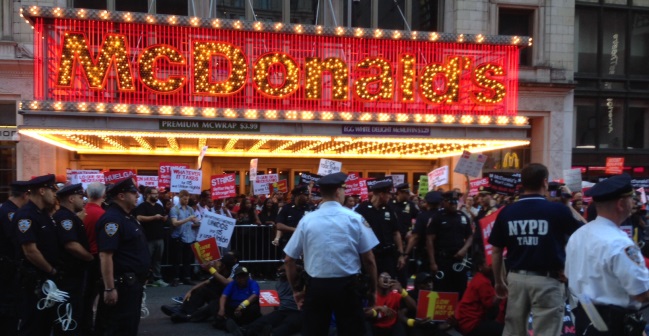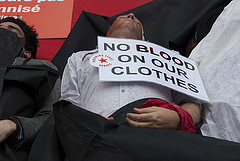Sidney's Picks: Fast Food Arrests & Construction Tax Rackets

The Best of the Week’s News
- Living wage advocates turn up the heat on the fast food industry with civil disobedience in cities across the country.
- How construction companies are dodging taxes and cheating workers by misclassifying them as contractors.
- The Justice Department will pursue a broad civil rights inquiry into the Ferguson Police Department, not just a limited probe of the Brown shooting.
- Missouri swore it wouldn’t use a controversial drug linked to botched executions, but it did.
[Photo credit: Wander Mule, Creative Commons.]








